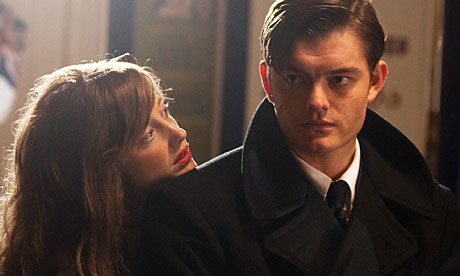
Graham Greene says, in Ways of Escape that Brighton Rock began in 1937 "as a detective story" and "continued as an error of judgment". Actually, it is the first novel in his oeuvre that risks an exploration of Roman Catholic themes, Good vs Evil, Right and Wrong, the existence (or otherwise) of Hell and Satan. Several critics have noted that here it also becomes a working out of a persistent conflict in Greene's nature about the reality of evil as a proof of God's presence in the world.
As well as being an edgy hybrid of thriller and morality tale, the book also offers the seduction of an extraordinarily compelling atmosphere, the timeless appeal of Brighton. Rowan Joffe's new film, updated to the 1960s, is particularly evocative of this quality, at times almost oppressively so.
Nonetheless, the tension between two genres and a winning location makes any film of the book an almost impossible challenge. No director could be faithful to the original, even if they wanted to.
Inevitably, several film critics have declared themseves disappointed with the latest version of this 1930s classic. I found, however, that Rowan Joffe's reimagining of the novel has the virtue of sending the Greene fan (of whom I'm one) back to the novel and its unresolved strangeness, a period piece that somehow engages with existential themes.
Which brings us to Pinkie, one of the most unlikely, but unforgettable, gangsters in English literature, whose descent into corruption draws the reader into the narrative. Joffe's film cannot do much with the invisible battle for his soul, any more than it can do more than hint at his unfortunate young wife Rose's struggle with absolution. But, in what it leaves out, and in its inevitable simplifications, it's a powerful reminder of Greene's tortured greatness as a writer.
As well as the film, I note that there's a new Vintage edition of Brighton Rock, with an appropriately spare introduction by JM Coetzee.

